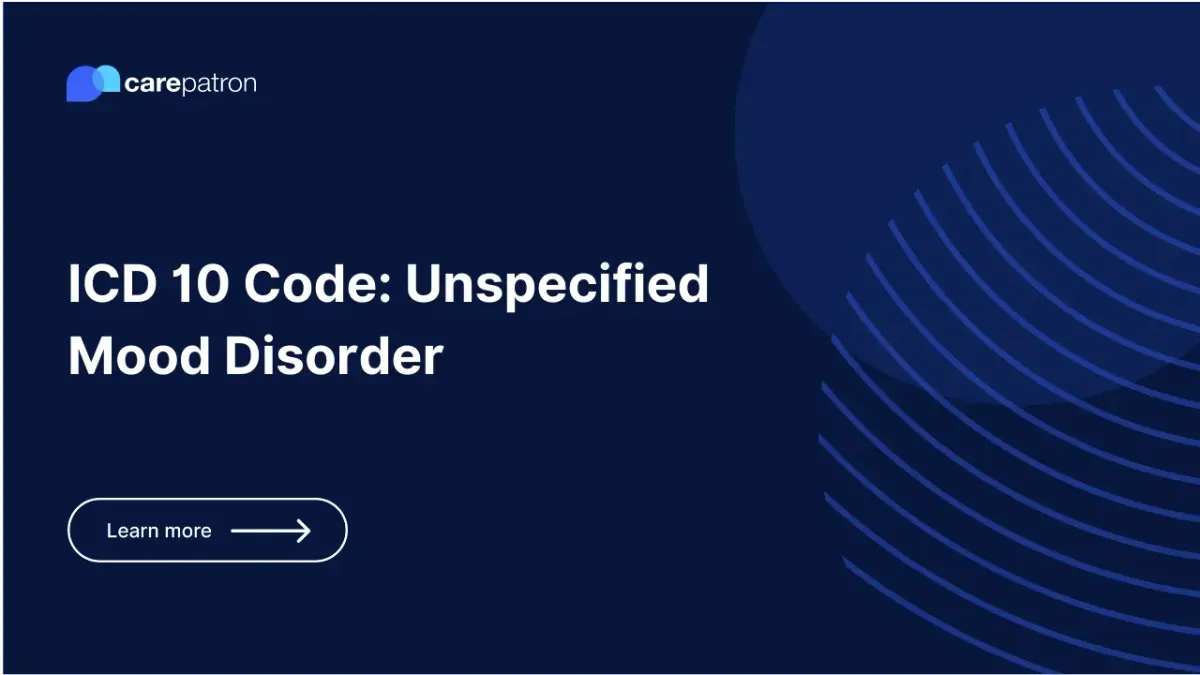
Unspecified Mood Disorder ICD-10-CM Codes
Learn more about the ICD-10-CM codes for unspecified mood disorders, including billable codes, clinical information, and more.
Use Code
Commonly asked questions
An example of an unspecified disorder is an "unspecified mood disorder," which is used when symptoms of a mood disorder are present but do not meet the full criteria for any specific mood disorder, such as depression or bipolar disorder. This diagnosis is applied when it is difficult to choose between an unspecified depressive disorder or bipolar disorder, and it is coded as F39 in the ICD-10.
Whether an unspecified mood disorder is considered a disability depends on its impact on an individual's functioning. If the disorder causes significant distress or impairment in social, occupational, or other vital areas of life, it may be recognized as a disability under specific legal frameworks. However, determining disability status typically requires a comprehensive evaluation by a healthcare professional or disability assessment agency.
Diagnosing a mood disorder involves a comprehensive clinical evaluation, including a detailed medical history, physical examination, and psychological assessment. Clinicians use standardized diagnostic criteria from manuals like the DSM-5-TR or ICD-10 to identify symptoms characteristic of mood disorders, such as persistent sadness, elation, or irritability. Additional tools like rating scales and questionnaires may also be used to assess symptom severity and impact on functioning.
EHR and practice management software
Get started for free
*No credit card required
Free
$0/usd
Unlimited clients
Telehealth
1GB of storage
Client portal text
Automated billing and online payments
